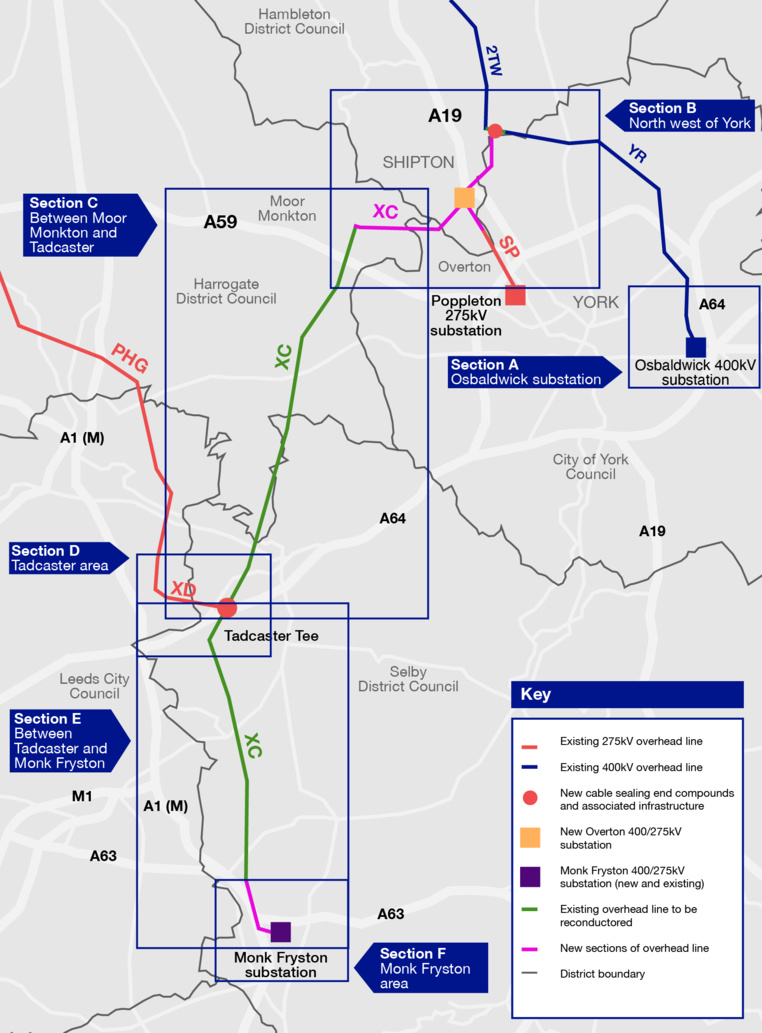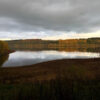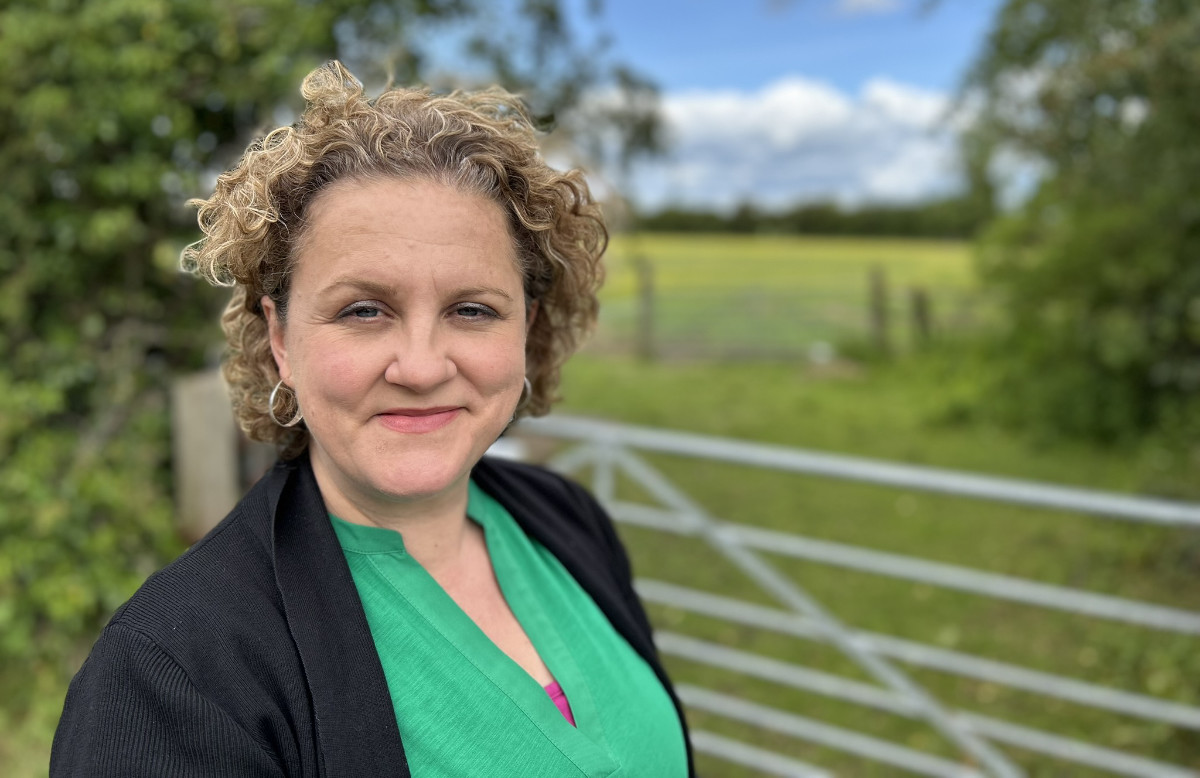- New electricity reinforcement is needed to upgrade the high-voltage power network in Yorkshire
- The project forms part of the electricity network upgrades identified across the UK to help deliver the government’s net zero targets for 2050
- National Grid has now submitted its application for development consent to the Planning Inspectorate
- Should the project receive consent, the reinforcement works would begin in summer 2024 and be operational in 2027
National Grid has submitted its application for development consent to the Planning Inspectorate for the Yorkshire Green Energy Enablement Project. The Planning Inspectorate will now consider if the application should be accepted and taken forward to the next stage of the planning process*.
The Yorkshire Green Energy Enablement Project is a proposed upgrade and reinforcement of the high-voltage power network, which will allow more low-carbon energy to get to homes and businesses in Yorkshire and further afield. The reinforcement will help deliver the government’s net zero targets to transition to a cleaner, more affordable, and more resilient energy system.
The project is located within Yorkshire, with the most northerly components located approximately 10 kilometres north-west of York city centre, and the most southerly components at the existing Monk Fryston substation, located to the east of the A1. The Project would involve both new infrastructure and works to existing transmission infrastructure.
Situated within Yorkshire, the Project spans from approximately 1.5 km north-east of the village of Shipton to the existing Monk Fryston substations, located to the east of the A1 and immediately south of the A63.
National Grid has been engaging with local stakeholders on the project since 2020, which has included two rounds of public consultation and further localised targeted consultations. Feedback from local stakeholders, communities and wider consultees has helped shape the proposals, which have now been submitted to the Planning Inspectorate.
Emer McDonnell, Senior Project Manager for Yorkshire Green Energy Enablement Project, commented:
We would like to thank members of the public and wider stakeholders for their comments during our consultation process and for their ongoing engagement. Their feedback has been valuable in helping us understand key local issues and to refine our plans for this essential network reinforcement.
More details on the project, including an overview of what’s being proposed and next steps, can be found by visiting nationalgrid.com/yorkshire-green or by contacting the community relations team by email: yorkshiregreen@communityrelations.co.uk or phone: 0800 029 4359.
| Location | Summary of works |
| Section B – North west of York area | Works would include:
|
| Section D – Tadcaster area | Works would include:
|
| Section F Monk Fryston substation area | Works would include:
|
What changes are proposed to existing infrastructure?
In addition to building new infrastructure, we also need to carry out works to existing infrastructure in the following areas:
| Location | Summary of works |
| Section A – Osbaldwick substation | Minor works at the existing Osbaldwick Substation comprising the installation of a new circuit breaker and isolator along with associated cabling, removal and replacement of one gantry and works to one existing pylon. All substation works would be within existing operational land. |
Reconductoring works along the existing 275kV Poppleton to Monk Fryston XC overhead line across two areas:
|
We need to carry out upgrading works to the existing 275kV Poppleton to Monk Fryston XC to include replacing exiting overhead line conductors (wires), replacement of pylon fittings, strengthening of steelwork and works to pylon foundations.
These works would take place to the north and south of Tadcaster. |
About National Grid
National Grid sits at the heart of Britain’s energy system, connecting millions of people and businesses to the energy they use every day. National Grid is working to build a cleaner, fairer and more affordable energy system that serves everyone, powering the future of our homes, transport and industry. National Grid Electricity Transmission owns, builds and maintains the electricity transmission network in England and Wales. It is National Grid Electricity Transmission that is developing the plans for the Yorkshire Green Energy Enablement reinforcement.
*Planning permission
The Yorkshire Green Energy Enablement Project is classified as a Nationally Significant Infrastructure Project and will therefore require the granting of a Development Consent Order. An inspector or panel of inspectors will be appointed as the Examining Authority to review the plans.
Once submitted, it can take up to 18 months before a decision is made. The Examining Authority will issue a recommendation to the Secretary of State for Business, Energy and Industrial Strategy, who will make the final decision.
Background
Much of the UK’s electricity network was built in the 1960s when the country was more reliant on fossil fuels. The existing electricity transmission network was not designed to transfer the current and increasing volume of generation capacity from the north to major centres of electricity demand which continue to exist in central and southern England. The network will require significant reinforcement in the Yorkshire area to provide capacity for these connections and customers to ensure that power can be transferred securely to onshore demand centres in the south to meet the needs of Great Britain’s electricity consumers. The reinforcement in this area would enable the connection of two interconnector projects (Continental Link and Atlantic Superconnection) and one offshore wind connection (Hornsea Offshore P4). If they are consented, all projects are expected to be operational by the end of the decade.
We need to connect huge volumes of renewable power to the network, to help deliver the government’s net zero targets and to transition to a cleaner, more affordable, and more resilient energy system.
The need for new network infrastructure has also been identified in North and South Wales, the Scottish Islands and West Coast, the East Coast of Scotland and Aberdeenshire, Lancashire, East of England, Kent, North-East England, and the Humber.









